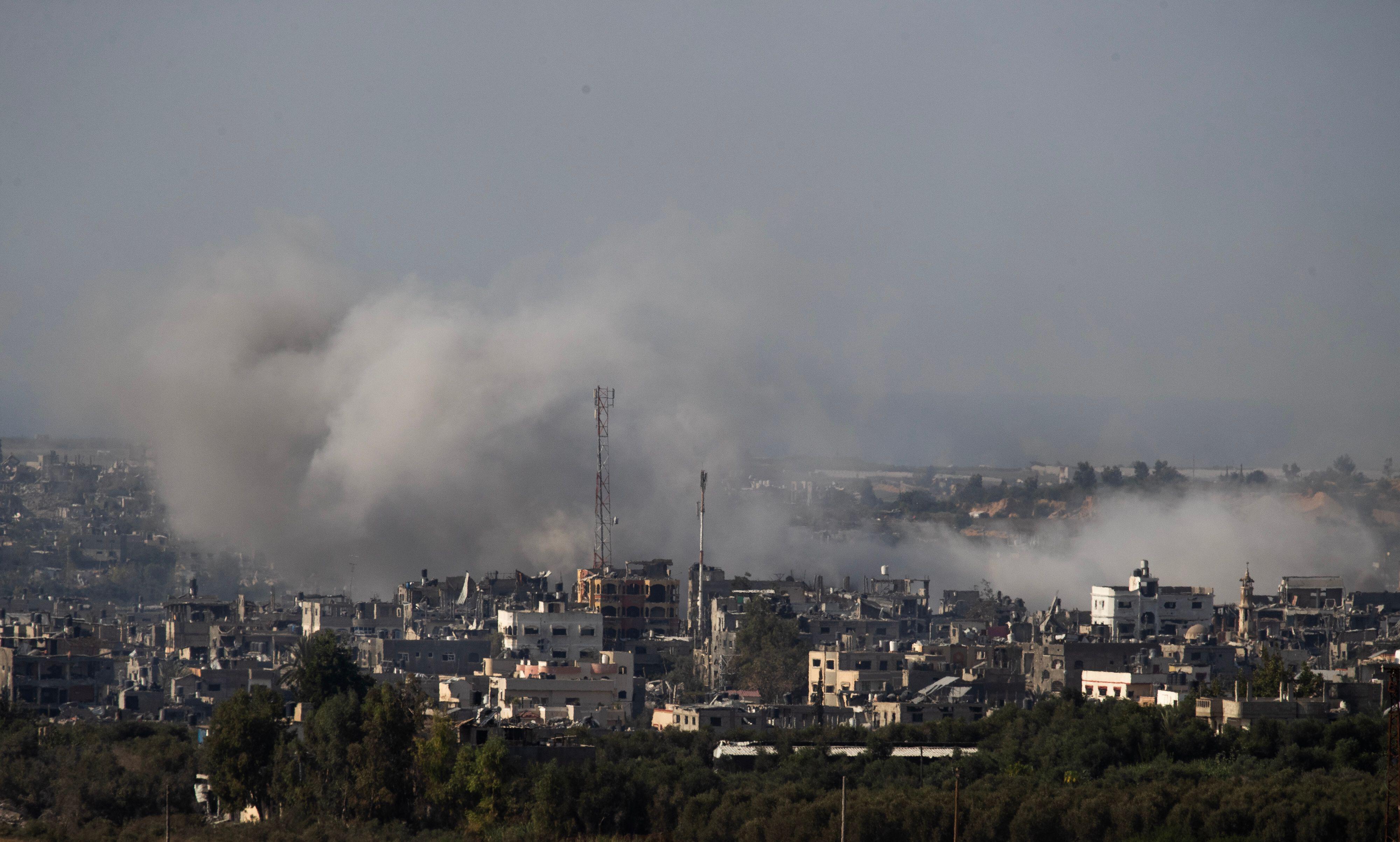In the face of extreme violence and a mounting death toll in Gaza, Western leaders seem to have remembered their commitment to a two-state solution for Israelis and Palestinians. But is it too late and are they guilty of negligence and failure?
In December 2022, the prime minister Rishi Sunak pledged to “oppose any actions which stand to harm the peace process and the two-state solution”. He was not the first political leader to do so.
It is a familiar refrain when it comes to Israel and the occupied Palestinian territory — albeit one touted less frequently in recent years.
Indeed, despite the UK’s clear position that Israeli settlements in the West Bank are illegal under international law and an obstacle to peace — not to mention the impact they have on Palestinian poverty — it is hard to discern any meaningful challenge.


Routine statements are offered in response to new construction, with warnings of escalating tension and that such action undermines efforts to achieve a two-state solution. But few such efforts are made, and Israel continues to build without consequence.
International inaction toward Israel’s unilateral transformation of the West Bank and its deepening occupation does not just impact negatively on Palestinians. It demonstrates that Israel has never been seriously challenged for illegal activity. Western leaders have contented themselves with opposing formal annexation of territory and ignoring day-to-day actions by the Israeli government which violate Palestinian rights.
Look no further than the King’s speech. The UK Government included the Economic Activity of Public Bodies Bill which effectively bans public institutions from boycotting goods from illegal settlements. The bill has been promoted to ensure local councils and other bodies do not take action that is inconsistent with the UK government’s foreign policy. Which begs the question, what is the Government’s position on settlements?
If there’s any doubt about the positioning of the Israeli government, the statements and sentiment of some of its ministers are instructive. Take Israeli finance minister Bezalel Smotrich. At a memorial service in Paris this year he claimed, “There are no Palestinians, because there isn’t a Palestinian people”.
In 2017, he outlined his vision of “Victory Through Settlement” and that “any solution must be based on cutting off the ambition to realize the Arab national hope between the Jordan and the Mediterranean.” In February, he was given broad authority over civilian issues in the West Bank, enabling him to increase settlement construction and thwart Palestinian development. Western silence has been deafening.
Last week, Ultranationalist MK and radical settlement activist, Tzvi Succot, was appointed to serve as the chairman of the Knesset Subcommittee for Judea and Samaria (West Bank). Following his appointment, he promised “to develop the settlements as much as possible.” In 2012, he was issued with a restraining order for “covert and violent activity against Palestinians” by the Israeli security service, Shin Bet.
For evidence, look at the occupied West Bank. Since October 7, more than 1,500 people have been forced off their land and 900 buildings destroyed. Not only that, but reports Israel is also lobbying international leaders to pressure Egypt into accepting Palestinian refugees is increasing fears amongst Palestinians that if they leave, they will not be able to return.
Palestinians in the occupied Palestinian territory fear they are facing ethnic cleansing and a second “Nakba”, meaning “catastrophe” in Arabic — fears compounded by Israeli Minister Avi Dichter referring to the current reality as “Gaza Nakba 2023”.
The lack of any meaningful reaction in the face of these developments has allowed Israel to break international law with impunity, while denying Palestinians their legitimate right to self-determination.
This instils a sense of fear amongst Palestinians that forcible transfer and ethnic cleansing are tacitly supported by some in the international community. Such negligence has indeed contributed to failure.
If leaders believe the two-state solution is the answer, then they need to act accordingly. That process must start with an immediate ceasefire. Otherwise, the violence of extremism in both societies will only intensify. With more than 11,000 killed in Gaza and 1,200 in Israel since October 7, the onus is on world leaders to demonstrate principled leadership now.
Politics.co.uk is the UK’s leading digital-only political website, providing comprehensive coverage of UK politics. Subscribe to our daily newsletter here.

